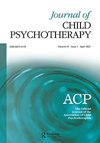学前教育中工作讨论小组作为同伴小组的功能:一个反思的解释
IF 0.8
Q4 PSYCHOLOGY, CLINICAL
引用次数: 0
摘要
在教育领域,工作讨论小组关注教师与学生的情感体验,并提供一个安全的环境,专业人员可以在其中自由互动,探索工作场所的动态和关系。精神分析治疗师通常会引导他们。他们被认为对学前教育特别重要,因为年幼的孩子会引起成年人强烈的情绪反应。虽然工作讨论小组在学前教育中的有效性得到了积极的评价,但他们的应用被认为在经济上负担不起。本文介绍了以幼儿教师为引导者的工作讨论同伴小组在幼儿教育中的作用。为此,引导者的观点在本文中以反思性叙述的形式呈现。一个由六名幼儿园教师组成的小组成立了。它召开了七届会议。每次小组会议结束后,主持人都会写一本反思日记。会议的主题包括引导者努力被视为同伴,小组动态,小组的发展和监督的重要性,这些都是讨论的内容。关键词:同伴群体心理分析群体教师群体早期教育反思会计工作讨论小组披露声明作者未报告潜在的利益冲突。这一点将在“群体动力学”一节中进一步讨论。在封锁之后(希腊有两次严格的封锁),托儿所本身刚刚开始面对面运作。然而,只有学生、教学和行政人员被允许进入校园(始终戴着口罩并保持社交距离)。所有会议(就像这里展示的工作讨论组)都是在线举行的。由于防治流行病的措施,托儿所各级职能所固有的剥夺程度很大,但这超出了本文件的范围。theofania Antypa是一名持牌托儿所教师,拥有教育咨询硕士学位。她与雅典国立大学和卡波迪斯特里安大学幼儿教育系同伴咨询中心的老师一起组织同伴工作讨论小组。Lida Anagnostaki是雅典国立和卡波迪斯特兰大学早期儿童教育系发展心理学心理动力学视角的助理教授,也是希腊儿童和青少年精神分析心理治疗协会的正式成员。她的研究兴趣包括精神分析和教育,创伤,亲子分离。本文章由计算机程序翻译,如有差异,请以英文原文为准。
The functioning of a work discussion group as a peer group in preschool education: a reflective account
ABSTRACTIn the field of education, work discussion groups focus on teachers’ emotional experience with their students and offer a safe environment in which professionals can freely interact and explore the dynamics and relationships in their workplace. A psychoanalytic therapist usually leads them. They are considered particularly important for preschool education, as young children provoke intense emotional reactions in adults. Although the effectiveness of work discussion groups in preschools has been positively evaluated, their application is considered financially unaffordable. This paper presents the function of a work discussion peer group in preschool education, that is with a preschool teacher as facilitator. To do so, the facilitator’s point of view is presented in this paper in the form of a reflective account. A group consisting of six kindergarten teachers was formed. It met for seven sessions. After each group meeting, the facilitator kept a reflective diary. The topics of the meetings included the facilitator’s struggle to be seen as a peer, the group dynamics, the development of the group and the importance of supervision, which are all discussed.KEYWORDS: Peer groupspsychoanalytic groupsteachers’ groupsearly educationreflective accountwork discussion groups Disclosure statementNo potential conflict of interest was reported by the author(s).Notes1. This point is discussed further in the ‘Group dynamics’ section.2. The nursery itself had just started to operate face to face, after the lockdowns (there were two strict lockdowns in Greece). However, only the students, teaching and administrative staff were allowed to enter school premises (always wearing masks and practicing social distancing). All meetings (just like the work discussion group presented here) were held online. The extent of deprivation inherent to the various levels of functioning of the nursery due to the pandemic measures was significant, but it is beyond the scope of the present paper.Additional informationNotes on contributorsTheofania AntypaTheofania Antypa is a licensed nursery teacher and has an M.Sc. in Counselling in Education. She runs peer work discussion groups with teachers in the Peer Counselling Center of the Department of Early Childhood Education of the National and Kapodistrian University of Athens.Lida AnagnostakiLida Anagnostaki is an Assistant Professor in Psychodynamic Perspectives in Developmental Psychology, Department of Early Childhood Education, National and Kapodistrian University of Athens and a full member of the Hellenic Association of Child and Adolescent Psychoanalytic Psychotherapy. Her research interests include psychoanalysis and education, trauma, and parent–child separation.
求助全文
通过发布文献求助,成功后即可免费获取论文全文。
去求助
来源期刊

JOURNAL OF CHILD PSYCHOTHERAPY
PSYCHOLOGY, CLINICAL-
CiteScore
0.70
自引率
50.00%
发文量
46
期刊介绍:
The Journal of Child Psychotherapy is the official journal of the Association of Child Psychotherapists, first published in 1963. It is an essential publication for all those with an interest in the theory and practice of psychoanalytic psychotherapy and work with infants, children, adolescents and their parents where there are emotional and psychological problems. The journal also deals with the applications of such theory and practice in other settings or fields The Journal is concerned with a wide spectrum of emotional and behavioural disorders. These range from the more severe conditions of autism, anorexia, depression and the traumas of emotional, physical and sexual abuse to problems such as bed wetting and soiling, eating difficulties and sleep disturbance.
 求助内容:
求助内容: 应助结果提醒方式:
应助结果提醒方式:


